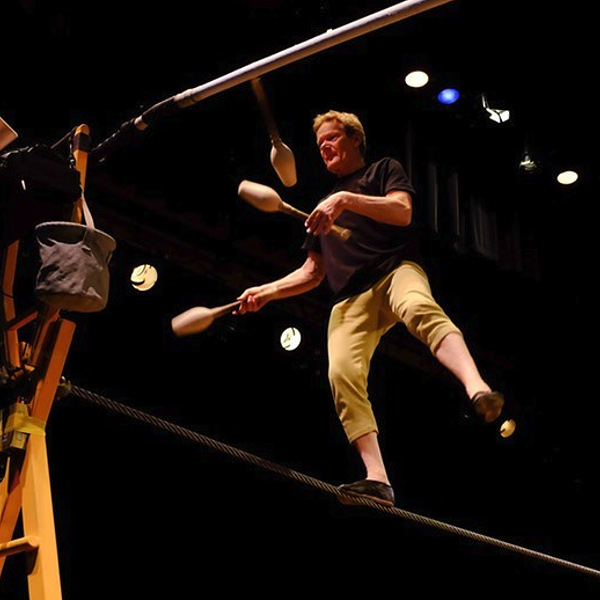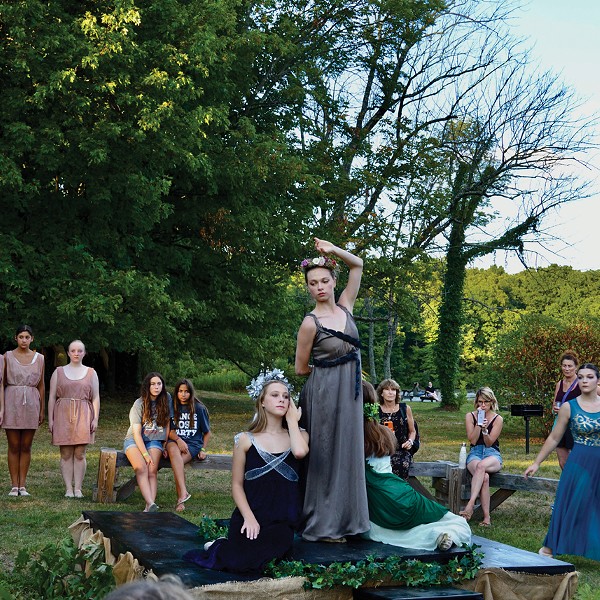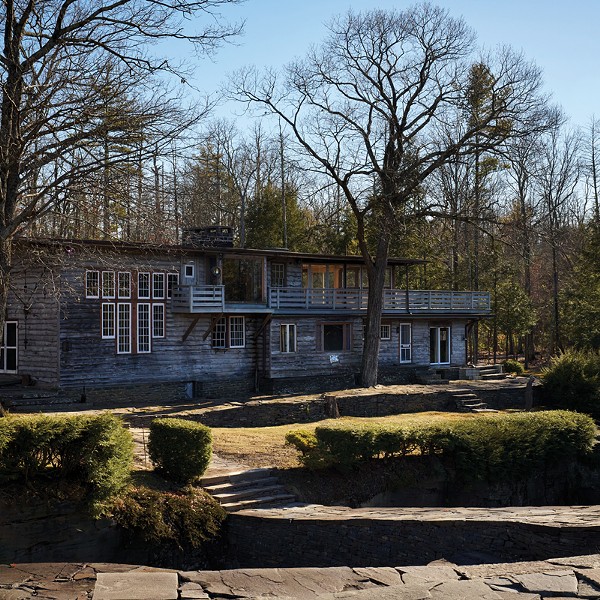There's nothing special about Greenburgh, a suburban town of about 88,000 in Westchester County, to suggest that it would be the incubator for one of the state's most ambitious pandemic volunteer projects. Unless you count Paul Feiner, the town's indefatigable supervisor. Feiner has helmed town government in Greenburgh for 30 years, re-elected again and again on the strength of an old-fashioned belief: that government ought to fix people's problems. It's easy to spot Feiner's car around town: It's the one with a taxi-style roof sign on top, printed with Feiner's cell phone number and the slogan "Mobile Problem Solver." "He's like the ice cream man, but for community outreach," says Kenny Herzog, a volunteer with Greenburgh's COVID Angels. In January, the group was barely an idea. By March, it was a national model, a fleet-footed hybrid of volunteerism and good government with a system for putting local talent to work solving local problems.
Launched with a handful of members after Feiner put out a call on the town website, the COVID Angels are now almost 300 strong. Their purpose, which they have pursued with fervor, is to help the most vulnerable people in town get signed up for a COVID-19 vaccine.
Meet the COVID Angels
The town's long tradition of constituent services, mostly projects of Feiner's, meant it had a solid base to work from. Greenburgh already had a volunteer corps of "Snow Angels" who help their elderly and disabled neighbors dig out. after snow storms. Between the Snow Angels and various other town programs, the vaccine volunteers had a contact list of about 3,000 people over 65 in Greenburgh, many of them housebound or medically vulnerable. Rather than wait for people to come to them for help, they started calling.In two months of action, the Angels have made more than 5,000 calls, and gotten vaccine appointments for more than 1,000 Greenburgh residents. In February, they ran a vaccine clinic at a local community center that got doses to another 750 people. They're working with churches and local health centers to reach low-income and minority residents who might otherwise get left behind in vaccine rollout. They've also created a set of guidance documents for other communities looking to launch similar programs.
To be a good Angel, you need both people skills and systems savvy. Like a lot of vaccine volunteers, Herzog is a desk warrior: By his own admission, he was the kind of kid who would call an 800 number on a cereal box to lodge a complaint. Now he's a business journalist. For Herzog, solving the puzzles presented by the confusing array of state, local, and private vaccine providers has been almost, well, fun. "You have to be so nimble when you're doing this," he says.
Problems abound, and new ones crop up all the time. Large pharmacy chains like Walgreens require people to sign up for individual accounts on glitchy websites before making appointments, a hurdle both for the digitally challenged and the volunteers trying to sign them up. Eligibility rules and state guidance shift constantly. Sometimes state call center operators will refuse to schedule an appointment unless the person getting the vaccine is on the call, citing medical privacy issues. "They stopped us in our tracks for a few days; they were quoting HIPAA scripture at us. It really fucks things up," Herzog says. But while vaccine signup systems have been confusing and buggy, the Angels have adapted, learning the skills to navigate different systems and sharing them with the community. Some have become experts in one type of site, or made personal connections with people at pharmacies and hospitals that help cut down on the friction.
"Some of the volunteers are really high-tech, and great organizers," Feiner says. It's also a social experience, a welcome virtual island of camaraderie in an ocean of social distance. "They're connecting with each other, they're making friends working with each other. It's almost like a presidential campaign style of volunteerism. People are enjoying being part of it," he says.
Anne Hoehn has been on board with the COVID Angels since there were fewer than a dozen of them. It's her job to stay on top of which sites in the community are getting doses and when, and let the volunteers who are making appointments know where the likeliest spots are at any given time. "That consists of doing our own research, setting Google alerts, reaching out to our networks to learn where allocations currently are and where they'll be, and also speaking with pharmacies and larger hospital networks directly to see if we can help them at all," she says.
If that sounds like a full-time job, it is. "We all laugh about that, because we all signed up saying we could do probably one or two hours a week," she says. "So many people are putting in so many hours. We can't stop." Hoehn, who has a decade of experience in sales and management, is currently home with two young children, ages two and four. Before the pandemic, she volunteered with Meals on Wheels, making house calls to homebound seniors, because it was the only volunteer gig she could find that would let her bring her infant daughter along. Now, as resource coordinator for the COVID Angels, she's essentially running a team for a midsize business, even if it happens to be unpaid.
Herding the Herd Immunity
As of mid-March, the vaccine supply bottleneck has already begun to widen. Increasingly, people are having an easier time making appointments. Before long, Feiner says, most people who want a vaccine won't need much help scheduling one.But rather than winding down their efforts, the COVID Angels are already pivoting to tackle the next problem: Getting the community to herd immunity. With help from a grant from the UJA-Federation of New York, the group is launching a program to address vaccine hesitancy in the community, employing local teenagers and partnering with local businesses on a marketing campaign. The effort already has a mascot of sorts, a character based on "Marc the Pharmacist," proprietor of Marinelli's Village Pharmacy in Elmsford, and one of many independent pharmacists in the state who have done a yeoman's job of getting community members scheduled for a vaccine.
In the end, if the Angels are successful at helping to get their little corner of Westchester County to the rate of vaccination needed for herd immunity—a number that's probably somewhere between 70 and 90 percent—New York State will take credit for their work, along with that of thousands of community volunteers, friends, and family members who make up the unofficial backbone of the state's vaccine rollout.
That's inevitable, and since the goal is to keep people alive and healthy, it's probably fine. But it goes to show: Local is everything.
"The community really tended to its own house," Herzog says. "The reason people are getting these vaccines is the result of volunteer groups, and the diligence and passion of community leaders. Especially in low-income and underserved areas."
Lissa Harris covers the pandemic for The River Newsroom. Sign up at Therivernewsroom.com for COVID-19 news and policy across the Hudson Valley and Catskills region via TRN's email newsletter.

















